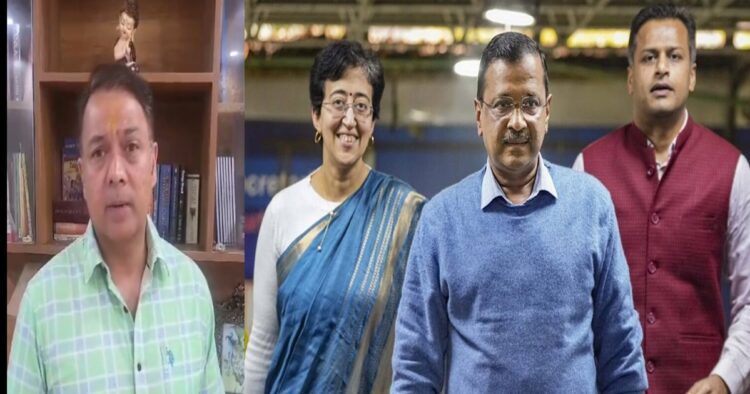Recently, the Aam Aadmi Party (AAP) found itself embroiled in controversy as party leader Nitin Tyagi exposed the alleged misleading tactics employed by party workers. Tyagi revealed that party workers have been collecting signatures from women on forms promising a monthly stipend of ₹1000 under the proposed Mukhyamantri Mahila Samman Yojana.
However, Tyagi asserts that the scheme has not been passed yet and is unlikely to be approved by the Lieutenant General.
Tyagi took to social media to voice his concerns, posting a video titled ‘campaign of lies stops from today.’ He criticized the party’s practice of distributing forms for the unapproved scheme, labeling it as dishonest.
आज से झूठ का प्रचार बंद। pic.twitter.com/c2kflApEVP
— Nitin Tyagi (@NitinTyagi_BJP) May 10, 2024
He warned party workers that they would face repercussions in the localities where they had been canvassing for signatures, emphasizing that the scheme’s passage was improbable.
Expressing his disapproval of the deceptive campaign, Tyagi stated that he refuses to be part of spreading falsehoods to win elections. He recounted his conversation with party leadership, where they allegedly prioritized winning elections over honesty, assuring that new party workers could be recruited after the elections.
The controversy surrounds the Mukhyamantri Mahila Samman Yojana, announced by Delhi Finance Minister Atishi in March’s budget speech, promising a monthly allowance of ₹1000 to women above 18 years of age.
ALSO READ: “AAP to Be Named as First Party Accused in Corruption Case Chargesheet”
Despite the budget allocation of ₹2000 for the scheme, it remains a proposal awaiting approval. Chief Minister Arvind Kejriwal had announced the imminent registration for the scheme.
The Election Commission (EC) has responded to such activities by issuing a stern warning to political parties against registering voters for post-election schemes. The EC’s advisory, issued on May 2nd, urged all national and state political parties to cease activities involving the registration of individuals for post-election beneficiary-oriented schemes through advertisements, surveys, or applications.
The Commission emphasized that such actions could create the perception of a transactional relationship between the elector and the promised benefit, potentially leading to inducement for votes.
ALSO READ: “Delhi Chief Minister Arvind Kejriwal Gets Interim Bail Till June 1”
This warning comes amidst growing concerns over the integrity of election processes and the need to maintain transparency and fairness in electoral practices.

















Comments